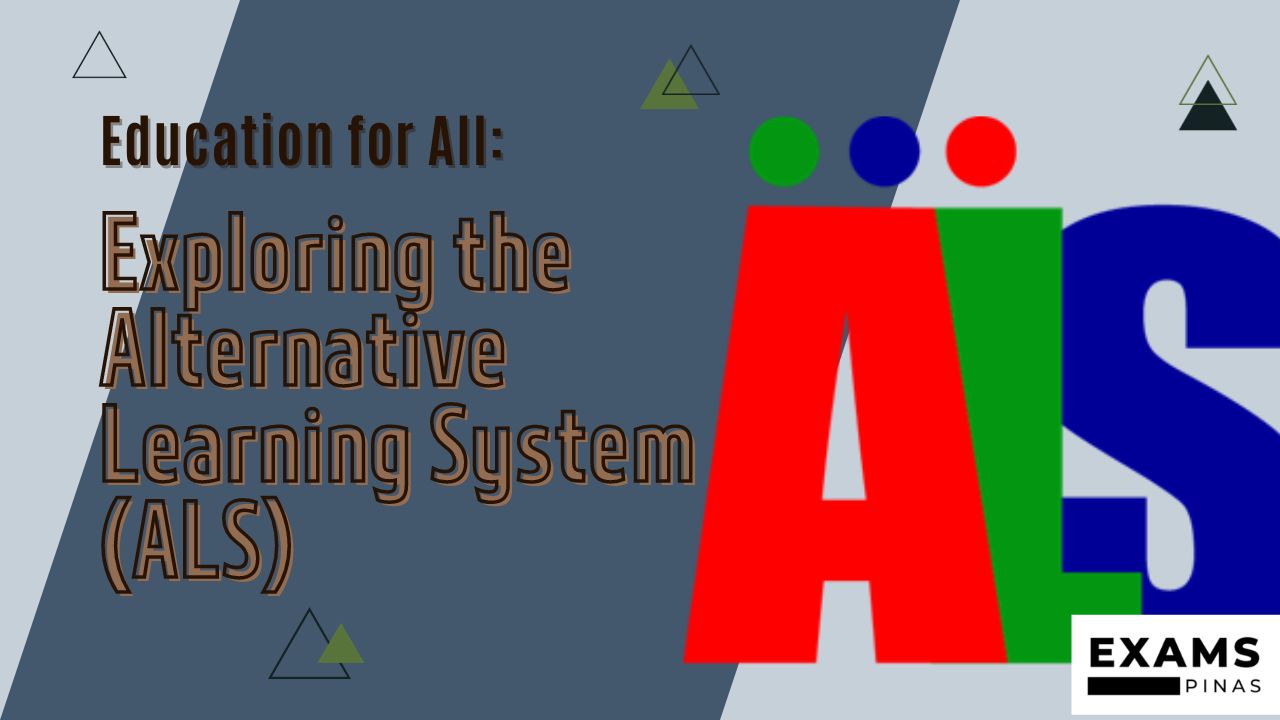In a rapidly evolving world, access to quality education should be a right, not a privilege. The Alternative Learning System (ALS) in the Philippines stands as a beacon of hope for those who may have missed out on formal education due to various circumstances. This comprehensive guide will delve into the intricacies of ALS, its impact on individuals and communities, and how it stands as a testament to inclusivity in education.
Understanding ALS: A Paradigm Shift in Education
What is ALS?
The Alternative Learning System (ALS) is a parallel learning program in the Philippines that provides an alternative pathway to basic education for out-of-school youth and adults. It caters to individuals who, for various reasons, were unable to complete their formal education.
The Three Main Programs of ALS
- Basic Literacy Program (BLP): This program equips learners with basic reading, writing, and numeracy skills. It serves as the foundation for further learning.
- Accelerated Elementary and Secondary Education Programs: These programs are designed to provide a condensed but comprehensive curriculum for learners who wish to complete their elementary or secondary education in a shorter span of time.
- Informal Education: ALS also offers non-formal education programs that cater to specific communities or groups, ensuring that education reaches even the most marginalized sectors of society.
ALS in Action: Transforming Lives
Overcoming Barriers
ALS is a powerful tool in breaking down barriers to education. Whether it’s due to financial constraints, distance from formal schools, or personal circumstances, ALS provides an opportunity for individuals to continue learning and eventually earn an equivalent diploma.
Flexible Learning Paths
One of the key strengths of ALS lies in its flexibility. It acknowledges that learners have diverse needs and circumstances. By offering various learning modalities, including face-to-face classes, blended learning, and even mobile-based learning, ALS ensures that education is accessible to all.
Empowering Communities through ALS
Localizing Education
ALS takes a community-based approach, allowing education to be tailored to the specific needs and realities of each locality. This not only makes learning more relevant but also fosters a sense of ownership and pride among learners and their communities.
ALS Educators: Unsung Heroes
The success of ALS is greatly attributed to the dedicated educators who go above and beyond to reach learners. Their passion, adaptability, and commitment are instrumental in making ALS a transformative force in Philippine education.
Challenges and Opportunities
Addressing Resource Gaps
While ALS has made significant strides, challenges persist. Adequate resources, including learning materials and qualified instructors, remain crucial for its continued success.
Advocacy for ALS
Advocacy and awareness-building are essential in ensuring that ALS receives the support it needs. This includes garnering support from government bodies, NGOs, and the broader community.
Looking Ahead: The Future of ALS
Integration and Collaboration
The future of ALS lies in its integration with the formal education system and collaboration with other stakeholders. This will help streamline pathways for ALS graduates to further their education or pursue meaningful careers.
Celebrating Success Stories
As we explore ALS, it’s important to celebrate the countless success stories of individuals whose lives have been transformed through this program. These stories serve as a testament to the resilience and potential within every learner.
In conclusion, the Alternative Learning System (ALS) in the Philippines is not merely an educational program; it is a beacon of hope, a catalyst for change, and a testament to the power of inclusivity in education. By understanding, supporting, and advocating for ALS, we pave the way for a brighter, more inclusive future for all learners, regardless of their circumstances. Together, we can truly make education accessible to every individual, leaving no one behind.

